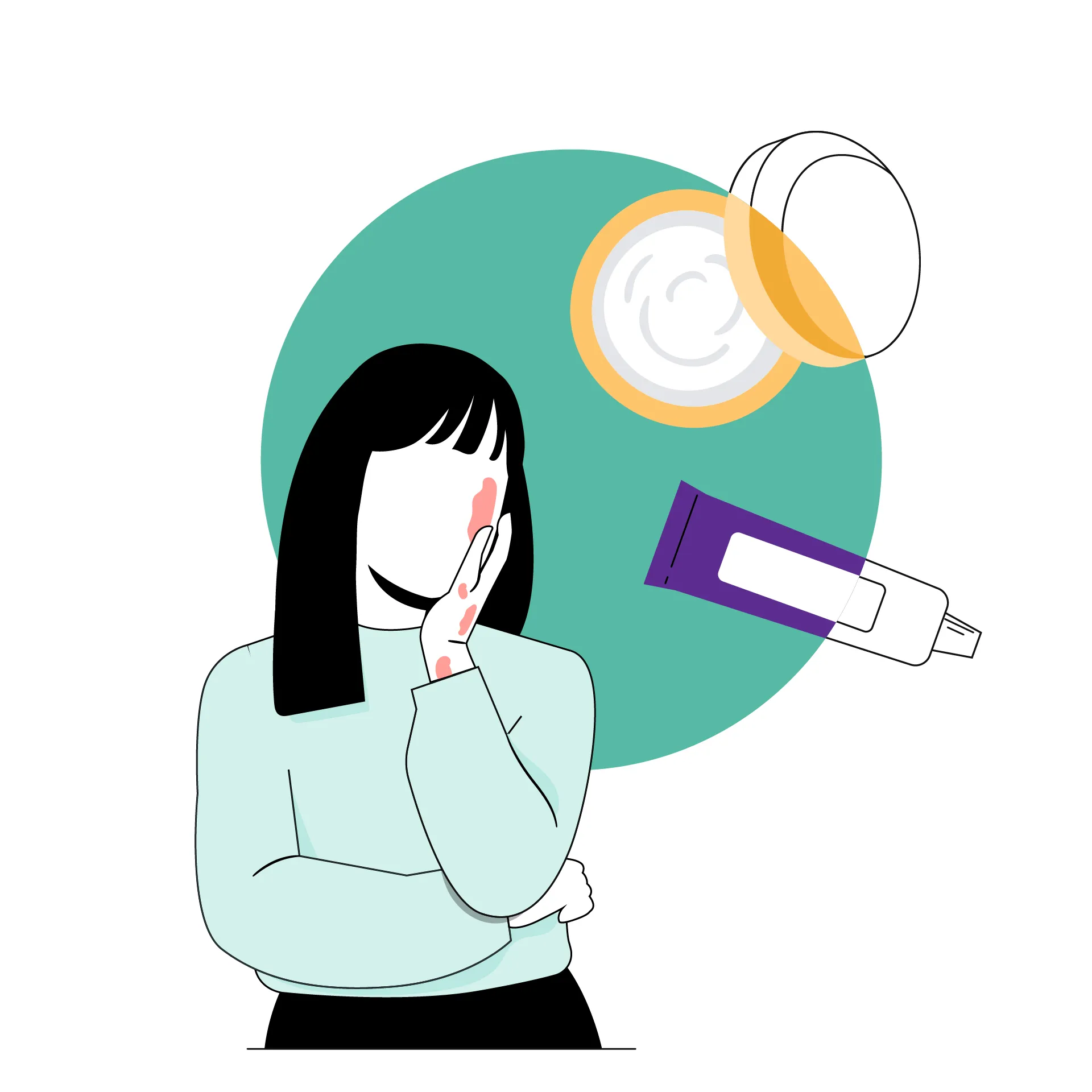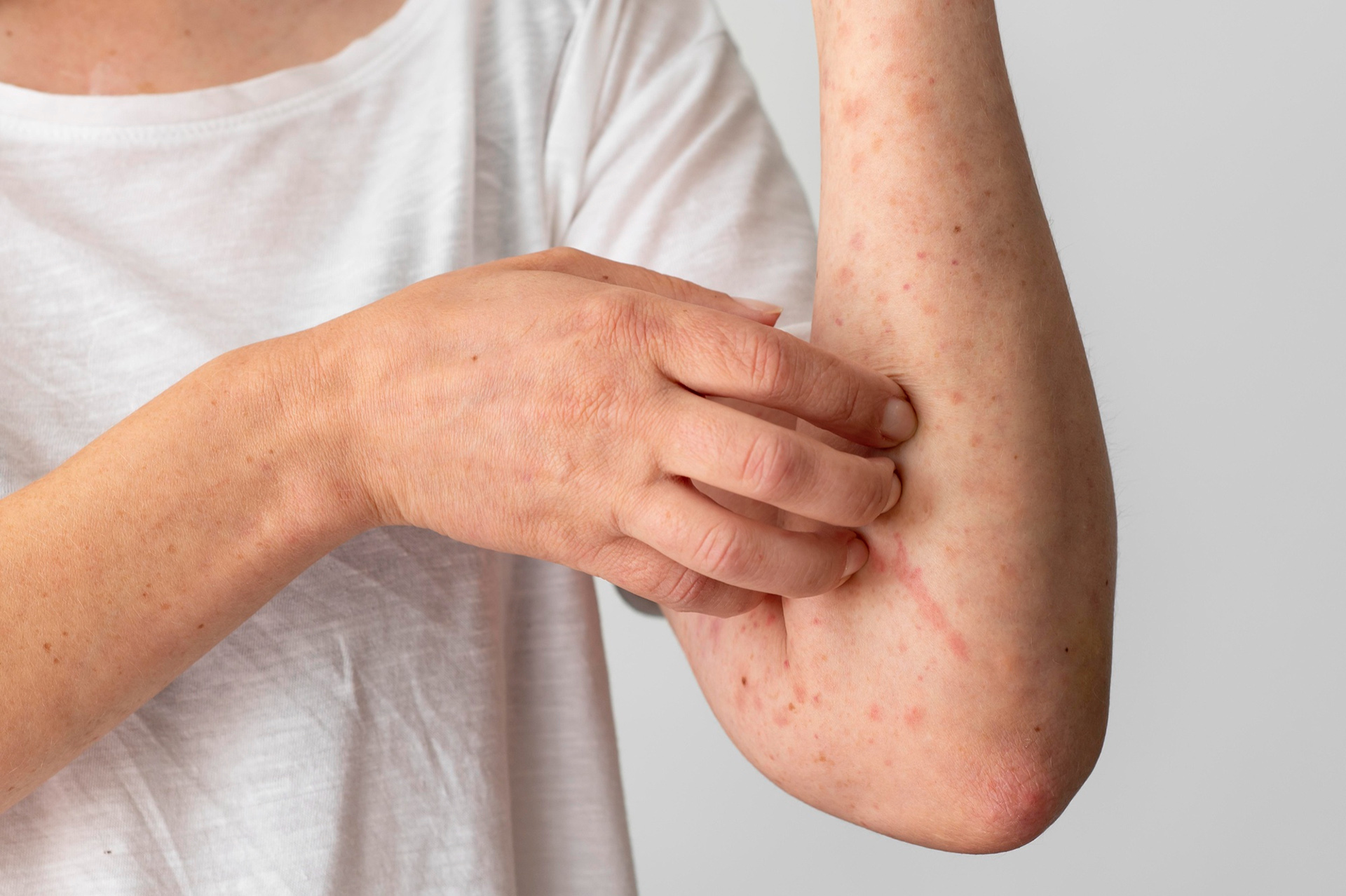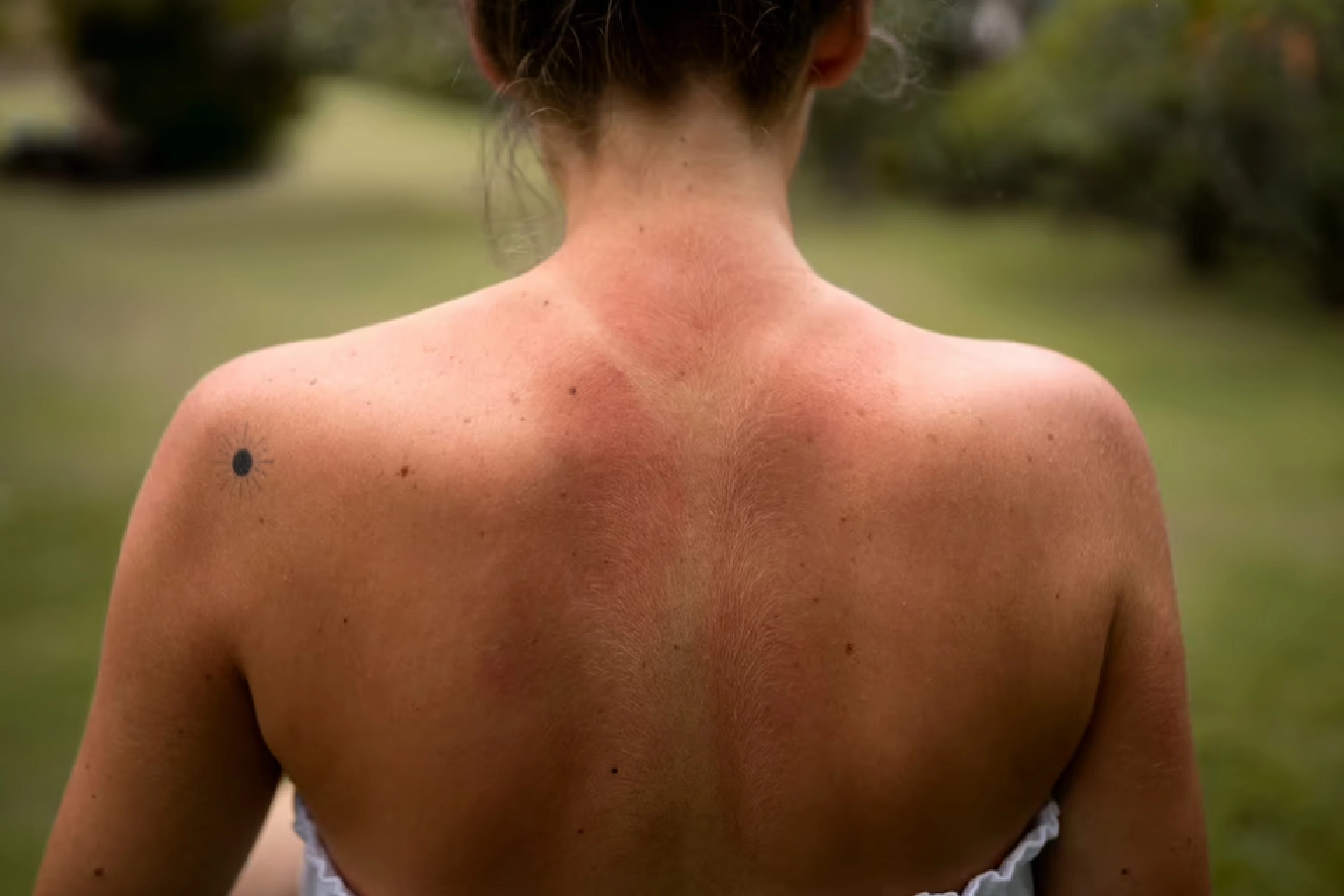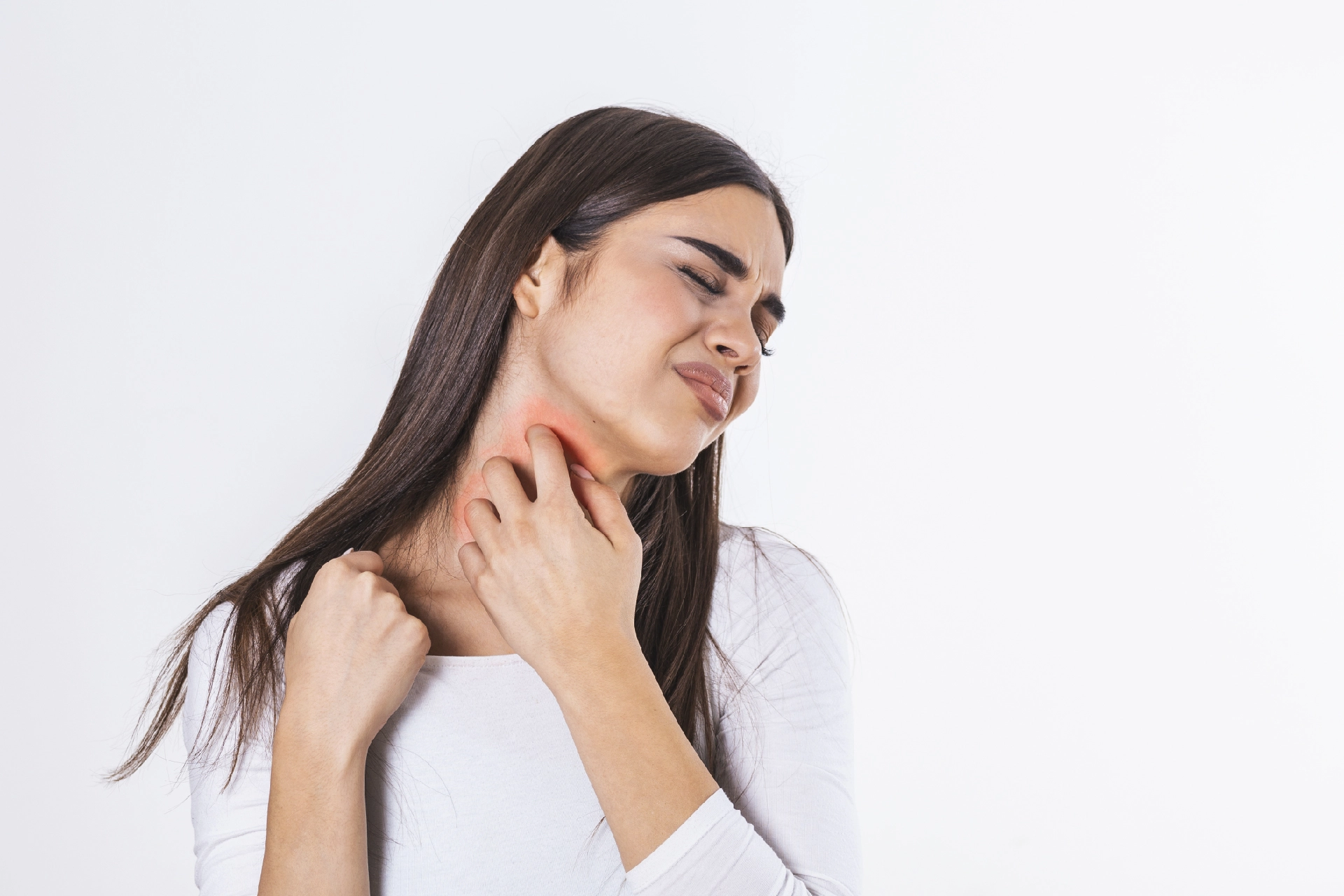Homeopath | 4 min read
Eczema Skin Flare-Ups: Eczema Symptoms and Its Preventions
Medically reviewed by
Table of Content
Key Takeaways
- Eczema skin condition is also known as atopic dermatitis
- Around 2.7% children aged 6-7 years in India have eczema
- Itching and scaling of skin are a few eczema symptoms
Eczema is a collection of skin conditions resulting in rashes. Also known as atopic dermatitis, these rashes itch, sting, and are annoying. Eczema skin flare-ups occur when red patches appear on your body parts including:
- Hands
- Feet
- Cheeks
- Forehead
- Neck
- Ankles
- Thighs
Eczema is common among young children below 5 years of age due to their sensitive skin. Although symptoms start disappearing over time, they may flare up again unless managed with treatment.
This condition is not contagious. However, some environmental and genetic factors can cause eczema skin flare-ups. Eczema can be long-lasting or chronic. Otherwise, they may flare up due to allergic reactions. Around 2.7% of children aged 6-7 years and 3.6% of children aged 13-14 years have eczema in India [1]. Read on to know eczema causes and treatment in detail.
Additional Read: Effective Skincare Tips for Treatment!
Eczema symptoms
Symptoms may vary for each person depending on their age and the severity of the condition. Here are some common symptoms.
- Itching
- Dry scabs
- Scaling
- Skin flushing
- Thick skin or cracks
- Small raised bumps
- Open crusted sores
- Dry and irritated skin
- Reddish-brown or grey patches
Some common eczema symptoms in adults include the following.
- Skin infections
- Scaly rashes
- Permanent itchy rashes
- Dry skin on the affected area
- Rashes in elbows, knees, or neck
- Rashes covering most body parts
Some common symptoms in infants and children are as follows.
- Bumpy rashes
- Skin thickening
- Lighter or darker rashes
- Rashes on cheeks and scalp
- Rashes causing extreme itchiness
- Rashes that bubble up before they leak fluid
- Rashes behind the creases of knees or elbows
- Rashes on ankles, wrists, neck, and crease between buttocks and legs
Eczema causes
Though the exact cause of this condition is not known, the triggers may differ among individuals. Here are some genetic and environmental factors that may have a role to play in this condition.
- Genetics: The risk of developing atopic dermatitis increases for children if one or both parents have eczema skin disease.
- Allergens: Coming in contact with pets, dust mites, pollens, or molds may lead to this condition.
- Irritants: Common irritants include soaps, shampoo, detergents, body wash, home cleaners, and disinfectants. Some people may even get triggered by fruit or vegetable juices, and meat. Cigarette smoke, nickel, perfumes, and antibacterial ointments also act as irritants.
- Foods: Certain foods like wheat, soy products, eggs, dairy, nuts, and seeds may lead to eczema skin flares.
- Temperatures: Extreme cold or hot weather, change in humidity, and perspiration can cause this condition.
- Stress: Although it is not a direct cause, emotional stress can trigger symptoms of eczema or make them worse.
- Hormones: Hormonal changes can cause eczema. For instance, change in hormones during pregnancy or menstrual cycles may increase its symptoms.
- Microbes: Microorganisms such as bacteria, viruses, and some fungi may flare up eczema skin condition.
Eczema prevention tips
Here are some tips to prevent eczema skin flare-ups:
- Do not scratch the rashes
- Stay away from allergens and irritants
- Install and use humidifiers in your rooms
- Take showers or bathe in lukewarm water
- Wear comfortable cotton clothing
- Learn stress management techniques to cope with stress
- Drink plenty of water to stay hydrated and use moisturizers on your skin
- Choose skincare products like creams and lotions carefully

Eczema skin treatment
Eczema usually reduces on its own. However, it may stay as a lifelong condition in some individuals. Complete cure is not available for eczema. Your doctor may suggest you a suitable treatment plan based on your age, symptoms, and overall health conditions to relieve symptoms.
- Medications
- Antibiotics
- Phototherapy
- Antihistamines [2]
- Injected biologic drugs
- Barrier repair moisturizers
- Topical corticosteroid creams and ointment
- Home care tip
- Apply moisturizer
- Gently pat to dry your skin
- Take precautions during winter
- Avoid changes in temperature
- Use a mild soap and non-soap cleanser
To get the right medicine for eczema skin disease, contact your physician. For better care, you can book doctor appointment with dermatologists and skin specialists on Bajaj Finserv Health. Consult for the best contact dermatitis treatment, blisters treatment, and other skin conditions. You can also cover your healthcare expenses with a Bajaj Health Insurance plan. Browse through the Aarogya Care plans which have diverse coverage and select among the best Bajaj Health Insurance Plans for family or individual. To prevent eczema and other skin diseases, start prioritizing your health right away!
References
- https://www.thelancet.com/journals/langlo/article/PIIS2214-109X(20)30061-9/fulltext#:~:text=reported%202%C2%B77%25%20overall%20prevalence,children%20aged%206%E2%80%9311%20years.
- https://www.nhs.uk/conditions/antihistamines/
Disclaimer
Please note that this article is solely meant for informational purposes and Bajaj Finserv Health Limited (“BFHL”) does not shoulder any responsibility of the views/advice/information expressed/given by the writer/reviewer/originator. This article should not be considered as a substitute for any medical advice, diagnosis or treatment. Always consult with your trusted physician/qualified healthcare professional to evaluate your medical condition. The above article has been reviewed by a qualified doctor and BFHL is not responsible for any damages for any information or services provided by any third party.





